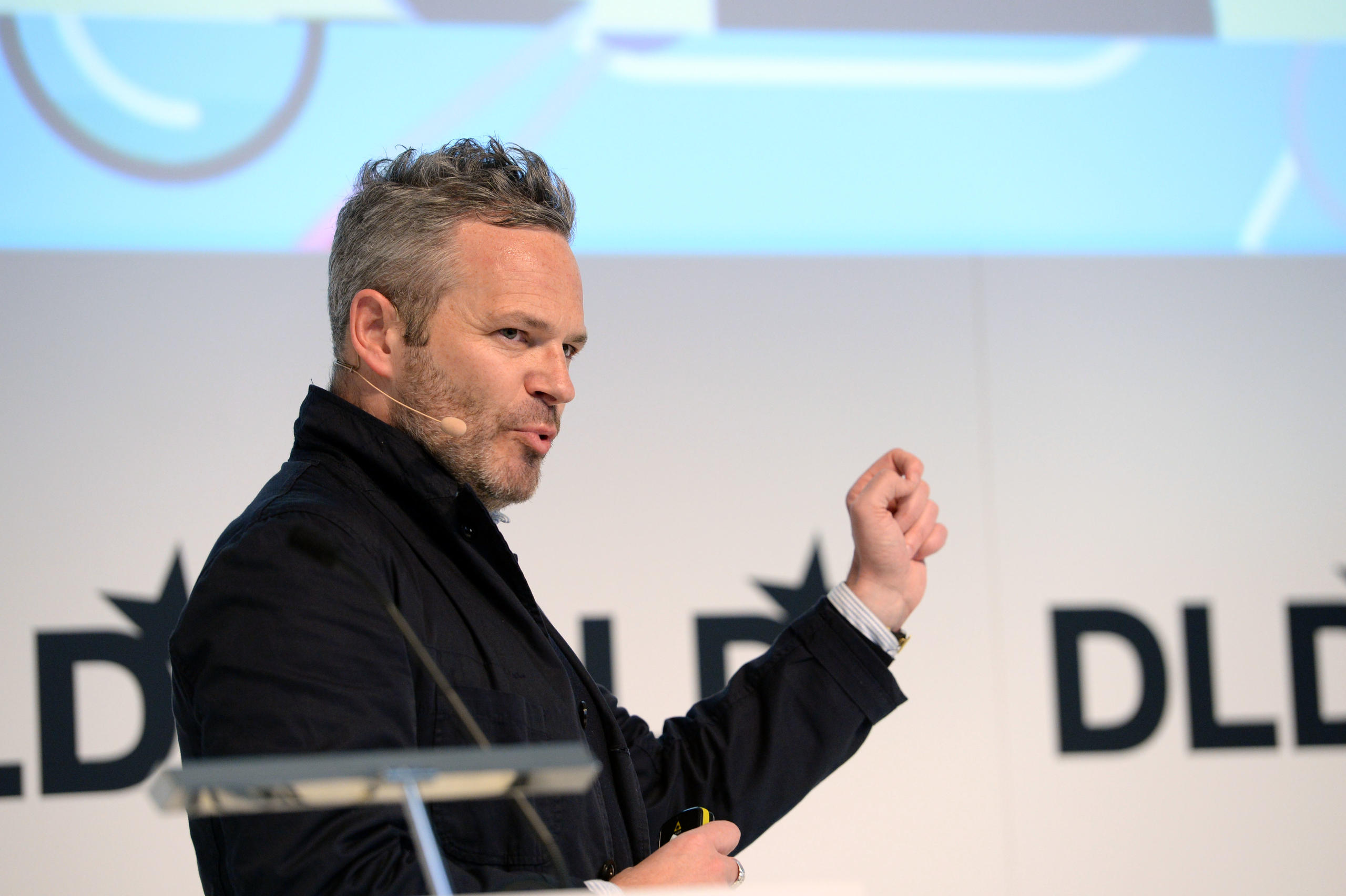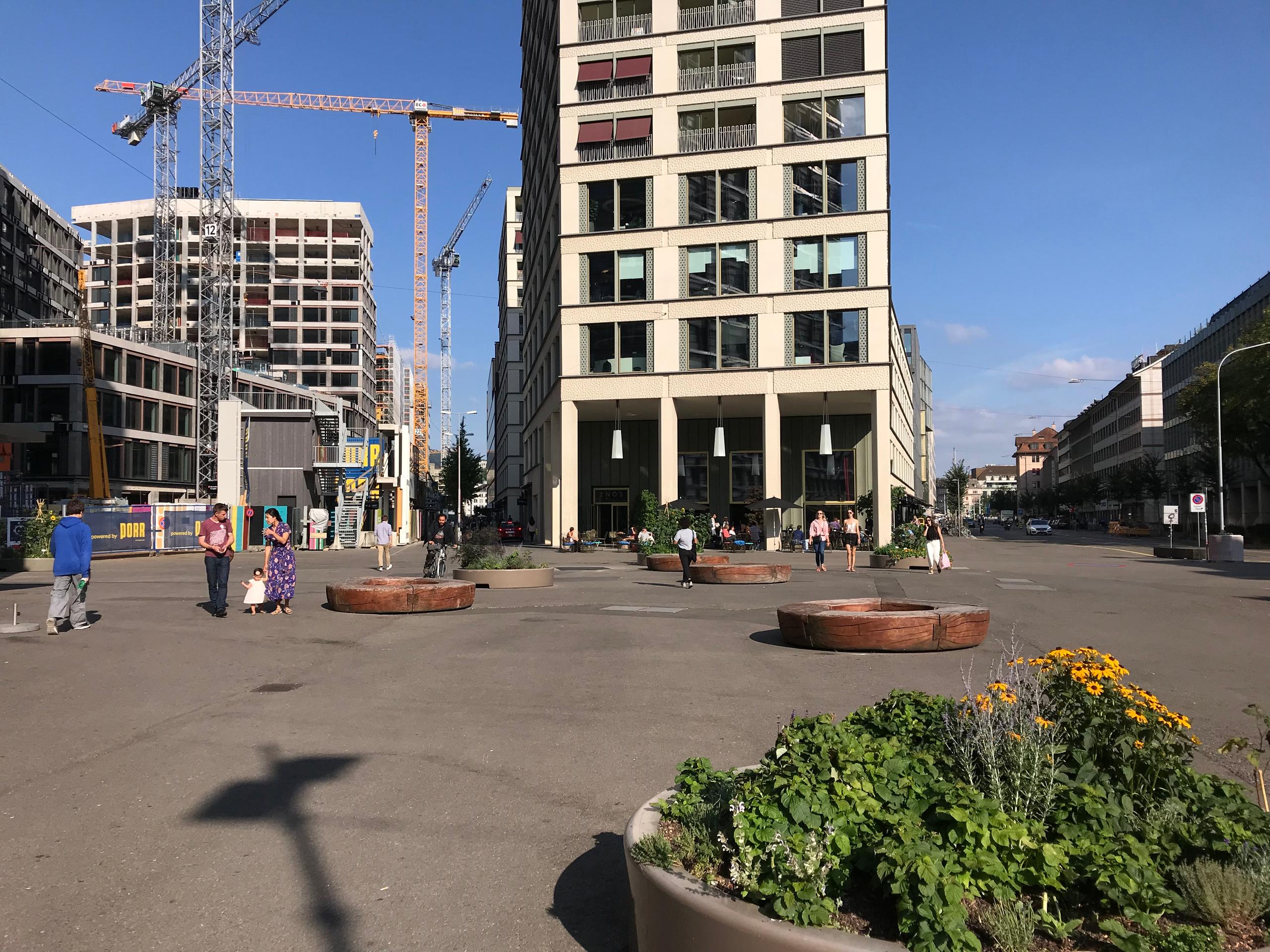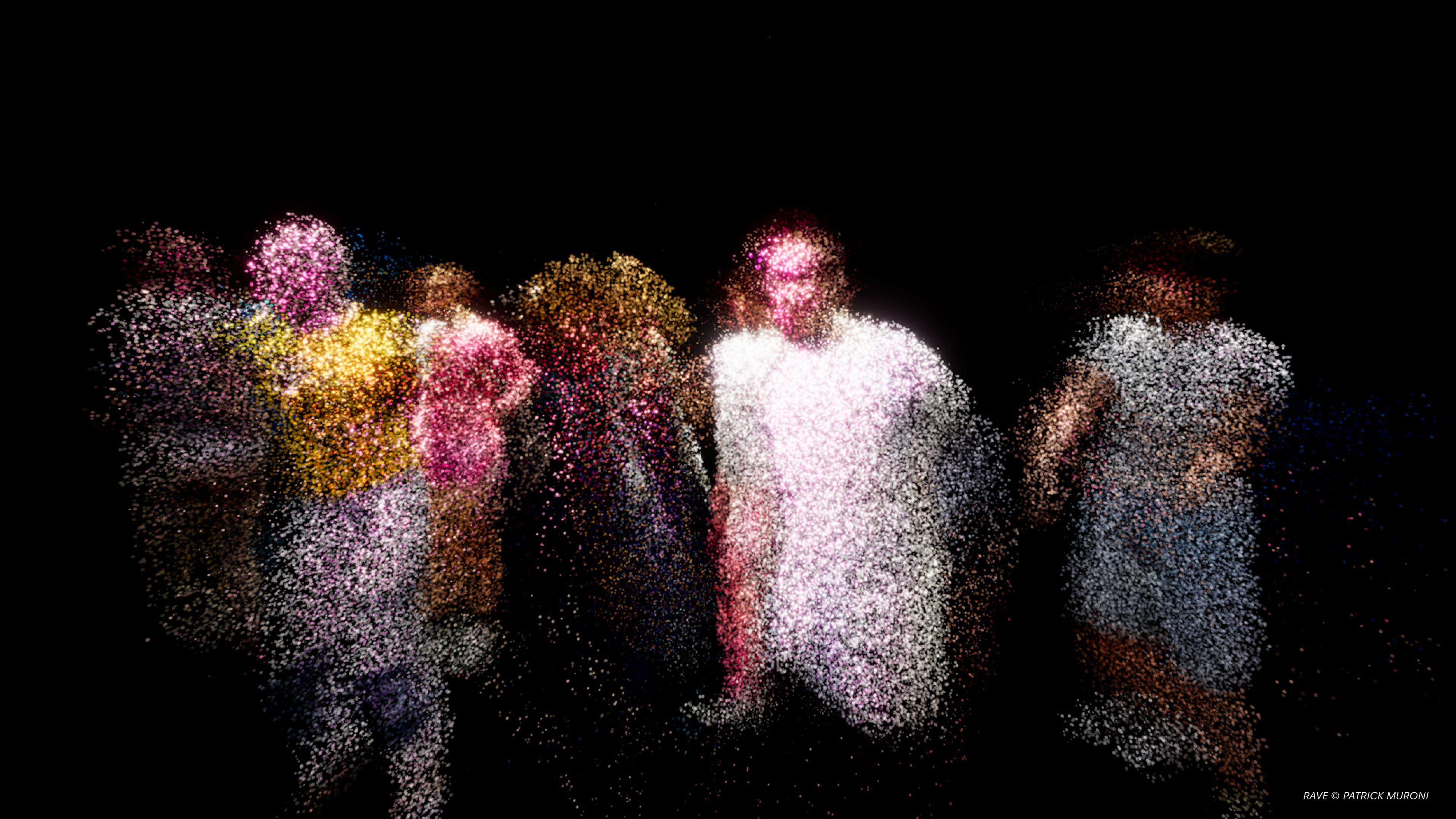
Tyler Brûlé says Switzerland has ‘lost a bit of its coziness’

Monocle magazine editor-in-chief Tyler Brûlé first visited Switzerland as a teen. Now the Canadian is running his media empire from a new office in Zurich. Though his love affair with Switzerland continues, he sees the need for some tweaks.
It’s a big day and Tyler Brûlé is ashamed of his haircut, the handiwork of a Tokyo barber. “I look like freaking Monchhichi,” he complains, meaning the fuzzy-headed Japanese toy monkey launched in the 1970s.
On top of the involuntary buzzcut, he seems uneasy about a welcome speech running longer than expected. As a local politician tells the audience what Zurich has to offer, Brûlé stands awkwardly at the other end of the stage – flicking through notes and murmuring to a colleague – so intently that he nearly misses a compliment.
“… in 2002, Tyler designed the ‘new look of Switzerland’ – with the SWISSExternal link design,” says Carmen Walker SpähExternal link, head of canton Zurich’s department for economic affairs. She’s referring to Brûlé’s branding of the new national airline SWISS, after Swissair was grounded in 2001.
This is his cue to start enjoying the Monocle conference dedicated to quality of life in Zurich and beyond. Later, during a coffee break, swissinfo.ch catches up with the jet-setting editor and design maven.
swissinfo.ch: Why are you so fascinated with Switzerland?
Tyler Brûlé: One of the first times I came to Switzerland was with my grandmother on a one-month trip through Europe while I was in high school. It really made an impression on me. I was 14, and here was a country where it was a land of trains and cows and all these things I grew up with in my storybooks. It sounds incredibly cliché, but I think that’s why it was so comfortable and why it resonated with me. And I’ve always been one for a bit of order and perfection, and that appealed.
I can’t speak in terms of “Heimat” [homeland], but sometimes you make a connection with a place, and Switzerland always stuck with me. It’s a very comfortable, comfortable place.
SWI: Speaking of Heimat, how’s your German and Swiss-German?
TB: Mein Schwiizerdeutsch ist nicht so schön, aber Hochdeutsch ist besser und besser. [My Swiss German isn’t so nice, but high German is better and better.]
SWI: How has Switzerland changed since you first experienced it?
TB: A lot of Swiss people say Switzerland is a bit slow, that things take ten years to hit stride, and I think that’s a positive thing. When I came in the early ’90s there were components of Switzerland that seemed a little bit frozen in time, architecturally, and recalled the glory days of Swiss architecture in the ’60s and ’70s. Usually the architecture was still there – and it’s still there today – but even the interiors and the design just hadn’t changed. I loved that, because it reminded me of growing up in the ’70s.
Switzerland has a strange disease now. It’s obviously been affluent for a very long time, but the Swiss can’t help themselves from constantly renovating and rebuilding, when sometimes I think they should just restore and preserve and leave things alone.
I sometimes think that’s just the great tragedy of the country – that so much amazing interior design work gets ripped out and is replaced by the frigid, the cold, the over-lit. Switzerland was once upon a time a very cozy place, and I think it has lost a bit of its coziness.
“Comfortable” and “cozy” are words that Brûlé uses several times within a few minutes. The venue he chose for the conference – the Kosmos KulturhausExternal link near the train station – is especially so with its plush cinema-style seating. And while many male conference speakers are in suits and dress shoes despite the warm weather, the head host is exposing his ankles between cropped trousers and brown-and-white tennis shoes.
For a decade, Brûlé’s “Fast Lane” column in the Financial Times shared his critical take on style and form – with much copy devoted to his travel experiences, both good and bad.
SWI: What’s your take on feet on seats on a train? Do you ever say anything to people if you think they’re behaving inappropriately?
TB: Oh, I love telling people off! I mean, that’s where I sort of feel I’m becoming very Swiss. And I almost feel there’s a safety in Switzerland – that you have permission to say something, whereas I believe in the UK, the US, or in the Anglo-Saxon world, you’re going to get into a fight or someone’s going to stab you or something bad is going to happen [giggles]. Whereas in Switzerland there’s still a sense of social capital.
The other day I was on the S16 coming from the airport and going to Stadelhofen and a commuter got on in Oerlikon with her headphones blaring and it was just annoying and you could see it was annoying people. And I just waved at this woman – Could she turn it down? And she said, “Oh, yes, sorry,” because she didn’t really know. I think one is within their rights in a public space to somehow create some degree of harmony.
SWI: Is that what you’re trying to do with MonocleExternal link? To create a sense of harmony in business and society?
TB: We’ve moved into a world where we can rate and comment on everything, and that’s removed a layer of basic essential civility that cities need. Cities are only going to succeed and function if people can get along. Of course people should be able to debate and have active discussions, but there also has to be a sense of easing up slightly.
So if we’re neighbours and you’re playing music quite loud, and I’m on the next balcony, maybe I should just close my door because it’s not a chronic problem and maybe it’s your birthday, and you’re only going to turn 40 once.
I think this is where we are today, where people think, “I’m going to take a photo of you and post it, saying my neighbour is an idiot,” and this massive battle erupts. This is one of the big problems that we face in cities right now. We’re calling for a bit of a “global chilling out”.
It’s funny, there’s a Swiss component to this. I really believe that really good cities rank well when it comes to quality of life when they actually have places where people can go and dunk their heads, and get into a fresh body of water and literally cool it. I think it does take the edge off a city. I always say that being able to jump into a great body of fresh water is an incredible reset, and you really do sort of feel not physically but mentally cleansed by it.

Greenery is another thing that he looks for. For our chat he heads under a tree in the courtyard, taking a seat on one of the felt cushions that’s been set on a stone bench. But he laments the lack of a leafy canopy along Zurich’s Europa-Allee.
TB: People are saying, “Wow, this is amazing, look what Swiss Federal Railways has done. I can’t picture the state rail company in my country doing a development like this.” But where are the trees?!
SWI: I think they’re coming in 2020, according to the project billboards.
TB: This one of the world’s richest countries. The planners and developers could have looked a bit more into adding shade and a temporary canopy, and it’s something I really miss. Yes, we’ve seen renders, but I think the challenge is, you can’t plant trees that are infants. There should be a program where you’re planting trees that are at least teenagers because we want to enjoy our environments immediately.
We see great developments all over the world but a lot of them fail very quickly because they fall down on our basic human needs. We want a canopy above us. We want shade and shadow. We want greenery. Often, people look at a development and they say, “God, why isn’t it working?” Well, it’s not working because there’s nowhere for people to converse in the way that we are under some small trees right now.
SWI: How do you feel about the takeaway culture? The fact that so many people are sitting on the side of the road eating out of some sort of disposable box?
TB: I think there’s absolutely room for takeaway culture. We’re talking about a mobile society; people are on the move and society is much more casual than it used to be, and that demands perhaps a more flexible approach to eating and drinking.
Now, we have to think about recycling the packaging and creating places where people aren’t just sort of plonked in the middle of a pavement. That comes down to good planning, not just on the part of the city, but also the private sector.
One of the things that I like in Japan is that you never see anyone walking down the street having a sandwich, although people do eat on the go. Japan has a massive convenience store culture, but people do it seated, in a much more discreet way. You never see someone with half a sandwich and mayonnaise across their face in Tokyo, and it’s something that I appreciate. But I have to say, on the grand scheme of things, I think Switzerland is doing alright.
SWI: Speaking of mobile and on-the-go, in a column you complained about out-of-office emails.
TB: I hate when you have, as I call them – OOORs, out of office replies – when someone is really being a little bit extreme as in: “I am going to be travelling with no access to emails, to communications.” Let’s be honest here. Are you going on an Antarctic expedition? And even then, you probably have a satellite phone. Let’s not overdo it.
“I am out of the office”? Fine. But I don’t need the extra three sentences explaining why you’re not there because we’re in the modern world. You can be connected if you want to be – that’s your choice.
Listen to this podcast to hear what else people had to say at the 2018 Monocle Quality of Life ConferenceExternal link:

More
What the Swiss can teach us about quality of life

In compliance with the JTI standards
More: SWI swissinfo.ch certified by the Journalism Trust Initiative




























You can find an overview of ongoing debates with our journalists here . Please join us!
If you want to start a conversation about a topic raised in this article or want to report factual errors, email us at english@swissinfo.ch.